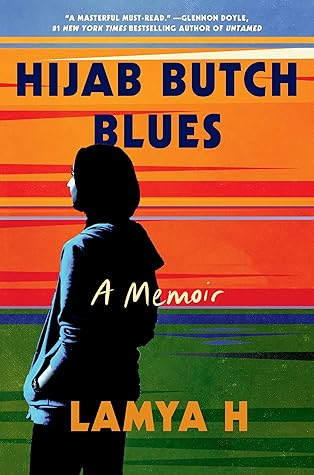More on this book
Community
Kindle Notes & Highlights
Maryam’s life was never her own, and now neither is her body. It is God’s vessel to carry a child she never asked for.
Suddenly, my arm raises of its own accord, and before I’m aware of making any conscious decision, I’m speaking, my voice higher than usual and breathless. “Miss. Miss. Did Maryam say that no man has touched her because she didn’t like men?”
Maryam is a dyke.
One day, a handsome and well-proportioned man comes to her door unannounced. No one will know if he stays awhile, no one will know what they do together. But before he can even talk, Maryam asks him to leave. No, thank you, she says, please don’t talk to me. She would rather have her solitude than the company of this handsome man. Eventually, she lets him stay—but only because he says he’s an angel.
She must have noticed my joy, but misreads its source. Looks at the steaming hot bowlful of the meatless version of my favorite food in front of me and smiles. “Don’t worry, Lamya,” she says. “We’ll find you a vegetarian husband.” A what?
My uncle moved here twenty years ago for college not knowing anyone, so he takes this job seriously: at the arrivals gate he hugs me and hands me a bag of Doritos. It’s my first lesson in blending in, he says, because Americans love snacks.
A God named Allah: Al as in “the,” lah as in “God,” the God, Allah—the God who always was.
In my mind, Allah has always been a woman, floating and ethereal in the night sky, wrapped in white dupattas and with a face like the moon, a face that looks suspiciously like my grandmother’s.
How can Allah not be a man or a woman? What else is there? And even though I can’t quite put this into words at six years old, the outlines of a question begin to appear inside me: Is it possible that I, too, might be this something else?
And I’m scared of the rampant homophobia in my mosque—not because it’s unique to Muslims, but because the homophobia of Muslims feels like more of a betrayal. These people who will be there with me through death prayers and financial woes and the institutional racism of this country, who will stand next to me through long prayers in Ramadan. These people who are my people. Who know what it’s like to be shunned for Muslimness but can’t extend that empathy to queerness.
I’ve learned to reframe telling people as inviting in, instead of coming out—inviting into a place of trust,
It hits me then that I am the only one in the room: the only practicing person of faith, the only hijabi, the only visible Muslim, even in this multiracial group of political queers who pride themselves on nonnormativity.
Because the country where my family lives is different from the country of my citizenship, which is different from the country where I went to college and am now in grad school, I’m constantly in a state of renewing visas and passports. I make color-coded spreadsheets listing my official documents arranged by dates of expiration, how long the documents will take to be renewed, and what needs to be renewed so other documents can be renewed.
It’s why I glorify self-sufficiency, have a hard time asking people for help. It’s why I minimize my own needs so I can spend all my time and energy taking care of others, so they love me, so they won’t leave me. It’s a way of making myself indispensable. It’s a way of making myself unleavable.”
Eid al-Adha means the feast of sacrifice. Also known as Eid al Kabir, Qurbani ki Eid, and Bakra Eid, it has a multitude of names combining some variation of the words “great,” “sacrifice,” and “goat.”
In the story that I prefer, though, Allah says, No, stupid, I never asked you to do this. Just because you saw something in a dream doesn’t mean that you have to do it, especially if it’s something entirely unreasonable, entirely against the principles of love and justice and everything I’ve taught you so far. I was testing you, Ibrahim, says Allah. But the test was to see if you’d use the intellect that I gave you, and you haven’t. You’ve followed blindly. You’ve failed.
“Are you sure?” she asks a million times in a million different ways. “I’m sure,” I say a million times in a million different ways.
I fought these people with all the ferocity, energy, and righteousness of my early twenties, feeling it was my moral calling. Sometimes I presented multipronged, well-researched counterarguments while speaking calmly. Sometimes I asked leading questions. Sometimes I yelled. I tried to contextualize my point of view in people’s own lives. I wheedled, used humor, pleaded, cajoled, coaxed, produced evidence, begged. But not once was I able to change anyone’s mind.
Yunus’s leaving is not the same thing as giving up. He knew when to disengage. He knew when to call it quits. He accepted that fighting was not serving his mission, was actually draining him of the ability to try and share his message effectively. His leaving was a way of taking care of himself. And it was also a way of taking great care with the message he believed in.”
Only fight with people I’m invested in and care about, and who are coming to the conversation with genuine openness and curiosity. No fighting with casual work colleagues, frenemies, or friends of friends. Definitely no fighting with strangers on the internet.
I’m not naïve enough to think we’ll reach this utopia in my lifetime or possibly ever, but I’m also not faithless enough to think that the direction in which I strive doesn’t matter, that these smaller versions of the world aren’t leading us there.


